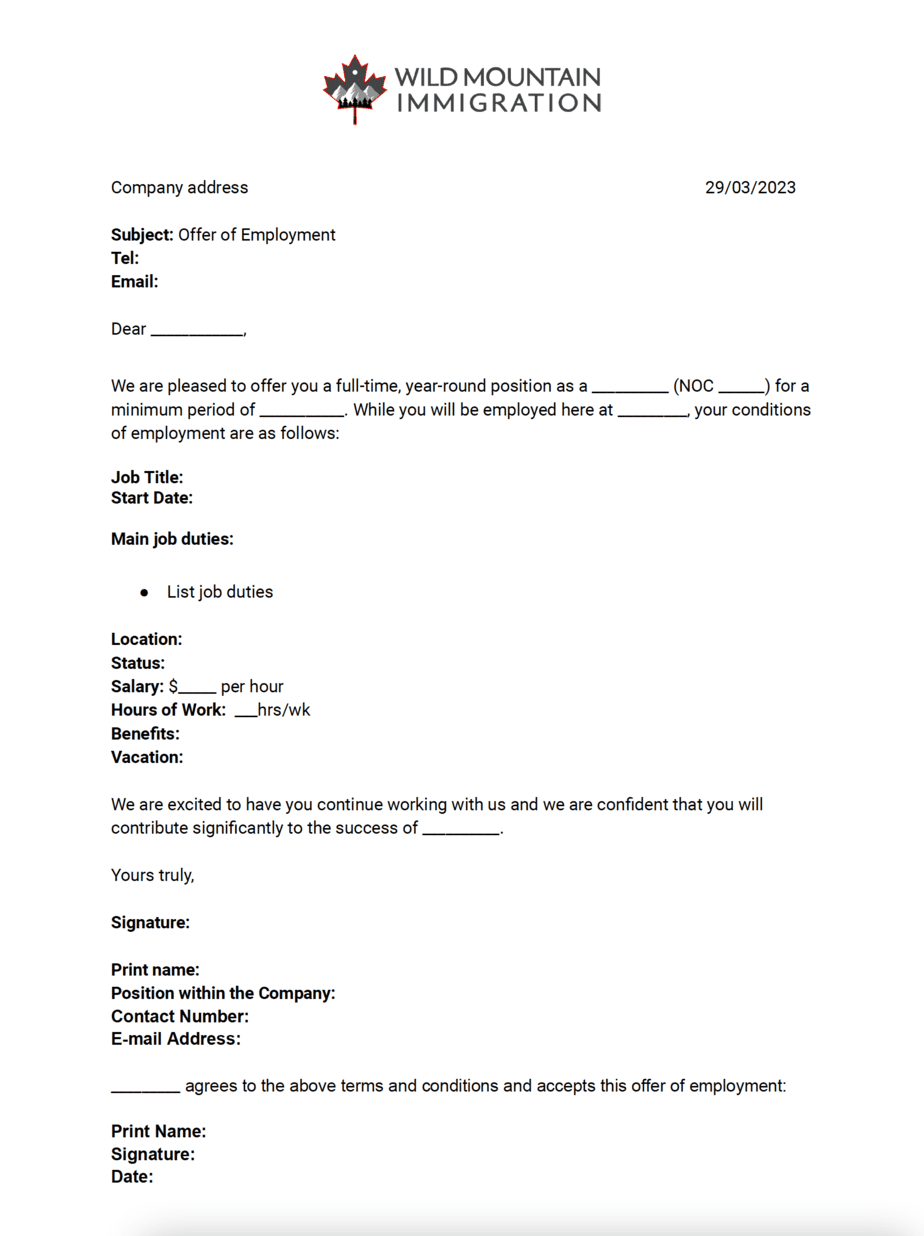Navigating the Express Entry system for Canadian immigration can be a complex process. One of the most critical components for a successful application is proof of work experience.
Work experience is a key factor in the Express Entry Comprehensive Ranking System (CRS). The more skilled work experience you have, the higher your CRS score, increasing your chances of receiving an Invitation to Apply (ITA) for permanent residence in Canada. Ensuring your work experience is properly documented and verified is crucial for a successful application.
The National Occupational Classification (NOC) 2021 Version 1.0 has established six TEER categories which assess the level of training, education, experience, and responsibilities required for a particular job. If you’re planning to apply for the Canadian Experience Class or Federal Skilled Worker Class through Express Entry, your occupation must be classified under the TEER categories 0, 1, 2, or 3 in the NOC. This means that your occupation must have a certain level of skill and expertise to be considered for these immigration programs.
In this comprehensive guide, we will walk you through the steps to verify your work experience to ensure your Express Entry application has the best chance for success.
Verifying proof of work experience for Express Entry
To verify your work experience, you will need to provide reference letters from your past and current employers. These letters must include the following information:
- Company letterhead
- Your job title and position
- Employment dates (start and end dates)
- Hours worked per week
- Main job duties and responsibilities
- Your employer's name, title, and contact information
Ensure that your reference letters are accurate, up-to-date, and on official company letterhead.
Additional proof of work experience
In addition to reference letters, you may need to provide other supporting documents. These could include:
- Pay stubs
- Employment contracts
- Tax documents (T4 etc)
- Promotion or salary increase letters
- Performance evaluations
Collect these documents as you prepare your Express Entry application to provide a comprehensive picture of your work experience.

Express Entry Ebook
This comprehensive guide will tell you everything you need to know.
Employment in multiple positions or companies
If you have held multiple positions or worked for multiple companies, provide reference letters for each job. These letters should follow the same format and include all of the necessary information provided above.
Self-employed or freelance work
Self-employed or freelance work experience can also be considered for Express Entry, as long as it is skilled work. Provide reference letters from clients, contracts, invoices, and any relevant tax documentation to substantiate your work experience.
Translations and equivalencies
If your reference letters and other employment documents are not in English or French, you will need to provide certified translations. Also, if your job title differs significantly from the Canadian equivalent, explain the job duties and responsibilities in detail to demonstrate how they align with the NOC code you are claiming.
Are you ready to get started, or not sure which option is best for you?
Find out how you can move to Canada.
Do I need to declare all my work experience for Express Entry?
While it is not mandatory to declare all your work experience for Express Entry, it is generally advisable to include as much relevant work experience as possible. This is because the Comprehensive Ranking System (CRS) takes into account your work experience when calculating your score. The more skilled work experience you have, the higher your CRS score, and the better your chances of receiving an Invitation to Apply (ITA) for permanent residence in Canada.
However, you should only include work experience that is relevant to the National Occupational Classification (NOC) code you are claiming. Work experience must be considered “skilled” to qualify for Express Entry, which means it must fall under the TEER categories 0, 1, 2, or 3 in the NOC.
What if I'm unable to obtain a proof of experience reference letter?
If getting a reference letter is not possible because the company has shut down, consider the following alternatives to provide evidence of your work experience:
- Termination or separation letter: This letter formally documents the end of your employment. It should be printed on company letterhead and include the dates of your employment at the company.
- Employment contracts: Employment contracts and agreements can help establish your work history.
- Reference letters: Former supervisors may have provided reference letters when they, or you, left the company. It is a good idea to request these letters when possible so that you can verify your employment later on.
- Pay stubs/direct deposit notifications: Old pay stubs or direct deposit notifications can demonstrate that you were on a company's payroll.
- Tax forms: If you no longer have old tax forms, such as a t4.
- Cover letter: include a cover letter explaining your circumstances and you can not get a reference letter from your employer
By gathering these documents, you can provide evidence of your work history even if a reference letter is unavailable.
Consequences of not providing proof of work experience
If you do not include a reference letter to confirm your employment history, Immigration, Refugees and Citizenship Canada (IRCC) may deem your application incomplete. After you submit your application for permanent residence, it undergoes a completeness check.
During this process, an immigration officer reviews your application to ensure that all required documents are provided and complete. If the officer determines that your application is incomplete, you will need to resubmit it. For Express Entry applicants, this could mean waiting to receive another Invitation to Apply (ITA).
Keep in mind that a personal affidavit attesting to your own work experience does not qualify as valid proof. If you submit a personal affidavit instead of appropriate evidence, the IRCC may still consider your application incomplete.
Conclusion
Successfully navigating the Express Entry system for Canadian immigration requires thorough preparation and attention to detail, particularly when it comes to proof of work experience for Express Entry. By following the guidelines in this comprehensive guide, you can ensure that your application is complete, accurate, and well-documented. By providing the necessary reference letters and supporting documents, you can demonstrate the relevance and validity of your work experience, thereby maximizing your CRS score and improving your chances of obtaining an Invitation to Apply for permanent residence in Canada.
In the event you face challenges obtaining a reference letter, such as a business closure, remember that alternative options and documentation are available to support your application. By being proactive and resourceful, you can overcome these obstacles and provide the necessary evidence for a strong Express Entry application.
Canadian Immigration FAQs
Find quick answers to the most common questions about Canadian immigration, visas, and permanent residency.
LMIA Costs Explained: How Much Does LMIA Cost in 2024?
For Canadian employers seeking to hire foreign workers, a Labour Market…
Can I Leave Canada After Applying for Spousal Sponsorship?
When applying for spousal sponsorship in Canada, many applicants wonder,…
Who Can Apply for BOWP (Bridging Open Work Permit) in Canada?
If you’re transitioning from temporary status to permanent residence in…
Start Your Canadian Immigration Journey
Our experts make the process clear, stress-free, and successful, so you can move forward with confidence and focus on what matters most.

Contact Us
Immigration questions and service enquiries
Consultation
Speak to an expert
immigration consultant
"*" indicates required fields




